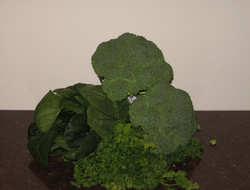Antioxidants
Published: June 10, 2022
Antioxidants, free radicals, and oxidative stress have become synonymous with the aging process, cognitive health, and prevention of cancer and heart disease.
The terminology used can sound quite alarming.
Our bodies are often reported by media as being constantly bombarded with free radicals creating dangerously high levels of oxidative stress.
It has been suggested that dietary antioxidant supplements prevent oxidative stress and thus reduce the risk for cancer, heart disease and other life limiting health conditions.
Athletes may be encouraged to supplement their diet with antioxidants to reduce exercise induced oxidative stress.
However, research is not conclusive regarding the benefits of antioxidant supplementation.
Antioxidants contained in food you consume appear to offer protection against oxidative stress and its negative health consequences.
There is no doubt that antioxidants have an important role in your body.
However, as with many natural compounds more is not always better as some antioxidants can also act as pro-oxidants and promote oxidative stress.
This article describes antioxidants, their role in your body, how diet can support antioxidant activity and health, and research on antioxidant supplementation.
What are antioxidants?
Antioxidants are naturally occurring compounds which protect other compounds from oxidation.
The process of oxidization occurs when an oxidant such as oxygen combines with another compound.
During these oxidation reactions the oxidant removes electrons from the compound it combines with which results in the production of a free radical.
A free radical is an unstable and highly reactive atom or molecule with one (or more) unpaired electrons.
In order to regain stability, free radicals take the necessary number of electrons from another compound which easily releases electrons.
Although the initial free radical is now stable, the compound from which the electron was taken becomes a free radical. A chain reaction is created which will continue unless it can be neutralised.
Antioxidants neutralise free radical chain reactions.
When an antioxidant releases an electron it does not become a free radical since it is stable with or without the extra electron and does not seek to replace the lost electron(s).
Oxygen containing free radicals are also called reactive oxygen species while nitrogen containing free radicals are called reactive nitrogen species.
Antioxidants include vitamin...link to the full article to lean more.
References
1.
Whitney, E. & Rady Rolfes, S. (2005). Understanding Nutrition. Belmont, CA: Thomson Wadsworth
2.
Gropper, S.S., Smith, J.L. & Groff, J.L. (2005). Advanced Nutrition and Human Metabolism (4thEd.). Belmont, CA: Thomson Wadsworth.
3.
Center for Science in the Public Interest (03/2013, 12/2007, 06/2009, 03/2012, 05/2011, 04/2012, 12/2011, 06/2011, 01,02/2011, 05/2007, 11/2012, 06/2008, 09/2011, 01,02/2013, 01,02/2012)

